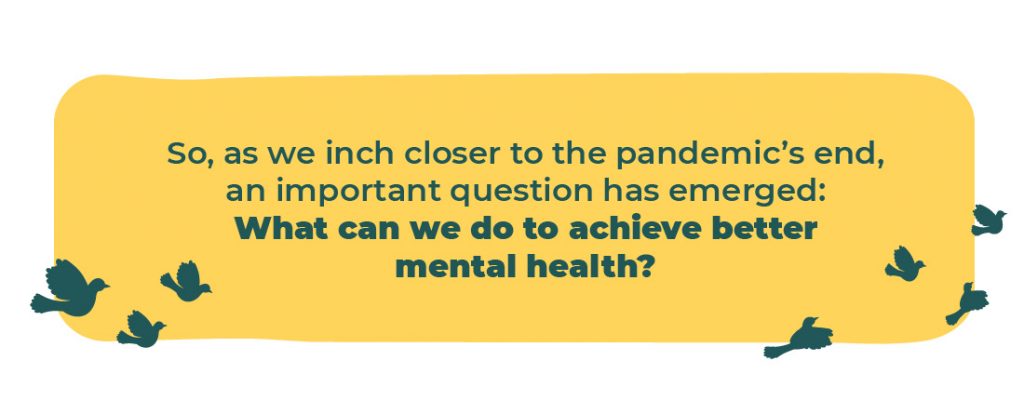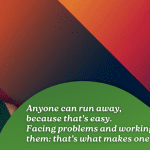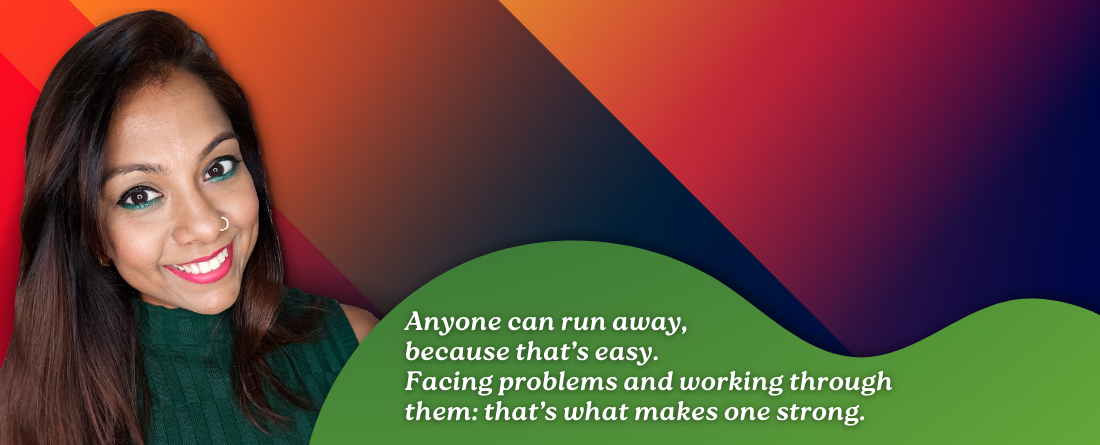Texas A&M University professor Anthony Klotz explains that people were able to take a step back over the past year to really question the value of what we’re doing at work. And a number of them have decided: “I need to make a change”.
Former US Secretary of Labor Robert Reich is less subtle: “Workers are burned out. They’re fed up. They’re fried. In the wake of so much hardship, and illness and death during the past year, they’re not going to take it anymore.”
You might wonder why this is relevant in an article about mental health. Well, if you have taken the time to evaluate your life too, you probably agree with those 4.3 million Americans: your psychological health matters and it’s time you do something about it.
Covid-19 has been awful to our well-being. It has left us anxious, depressed, traumatised, and lonely. Lives, livelihoods, and loved ones have been lost. Many are at the brink of collapse, either from work pressures, home life, chores, childcare, caregiving, or a combination of all these. Experts believe the world will face a post-pandemic mental health crisis, with repercussions yet unknown and unimaginable.
 Focus on yourself.
Focus on yourself.
Psychiatrist Dr Leela Magavi says the most important thing you can do is give yourself time to heal. Take the time to grieve, and get professional help if the pain becomes unbearable. Psychologist John Duffy says the pandemic may have compelled us to decide what we really need in life. It may be fewer hours at the office and a bigger emotional bank account, or more time alone to recuperate from social strains. So, Duffy advises us to take stock of the lessons we’ve learnt over the course of the pandemic, and implement them, to a reasonable extent, in our new normal life.
Accept and empathise.
How you heal, how fast, and what you need to get there, will be unique to you and you alone. This is not a race. So, forget about other people and focus on your own mental health journey. If you are in a position of authority, as a parent, teacher, supervisor or boss, it’s important to lead with empathy. If you want the best from your kids, students or subordinates, the ‘tough love’ approach would do more harm than good right now. Try being more understanding, cooperative and sympathetic instead.
Mind the body.
A lot of people have disregarded their physical health during the pandemic. Many have postponed medical check-ups, and many more have become a bit too sedentary. But our physical health is important, and can bolster our emotional health as well.
So, let’s start walking, running, lifting, or cycling. Let’s get our blood tests done, visit the dentist, and evaluate our eating and sleeping habits. We shouldn’t ignore our thoughts and feelings, and the same goes for our bodies.
A local plea.
Malaysians with mental health issues often suffer in silence. There is still stigma and misconception, and many don’t know where to go for help. The government acknowledges that laws need to change to humanise its approach to mental health, and infrastructure for psychological support remains a challenge.
Until better governmental efforts are realised, we must change the way we think and talk about mental health. This topic should not be considered taboo, embarrassing or humiliating. We need to be more open, and everyone should know it’s okay to seek help. We must help each other out, be it our friend, colleague, sibling, parent, child, partner or peer. No one should be alone in this, and mental health is something we must always prioritise.
Sources:
CNN, CNBC, NPR, TIME, Verywell Mind, University of California, Berkeley, Psychology Today, Asean Today
By Tengku Amina Munira









